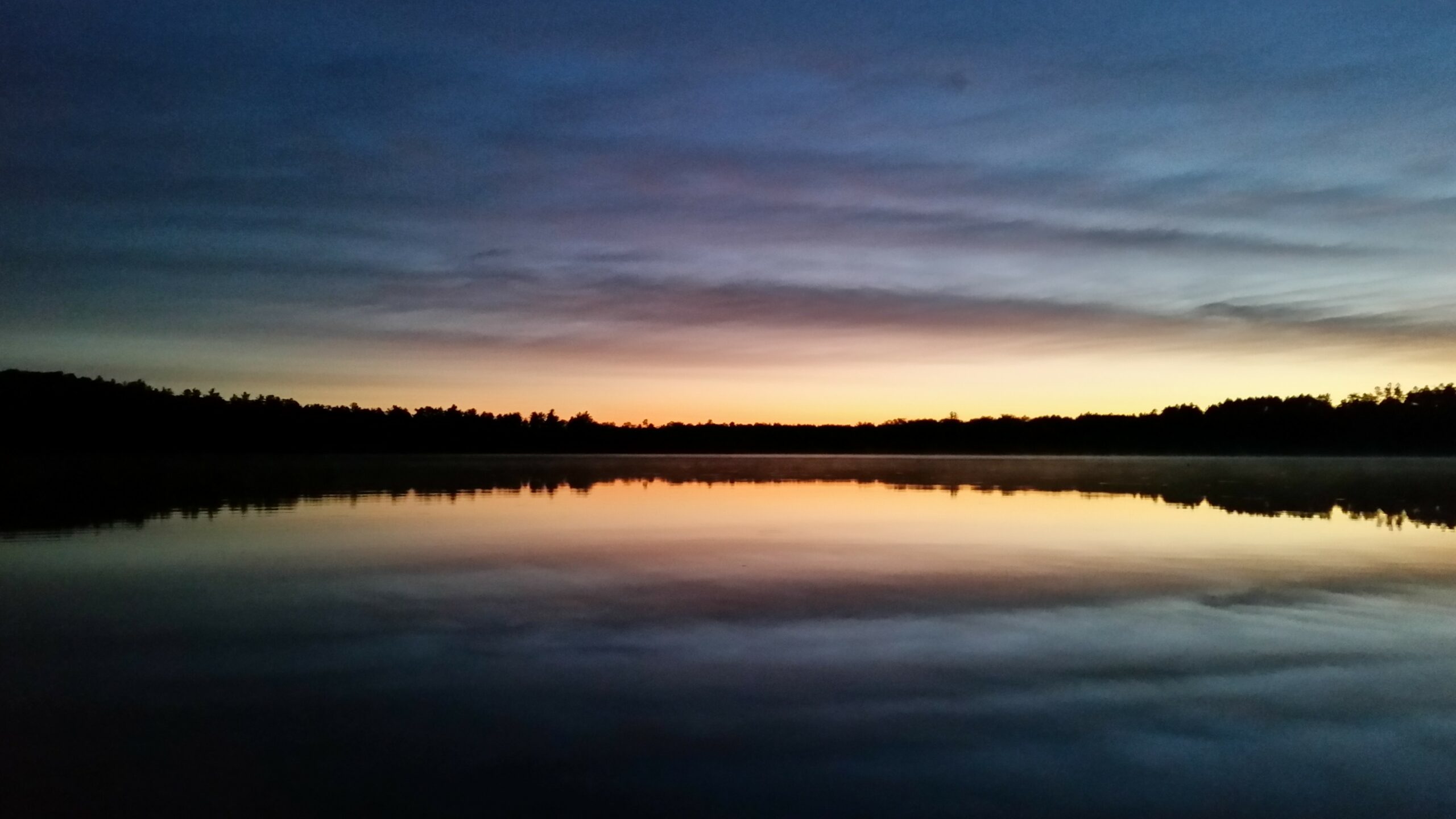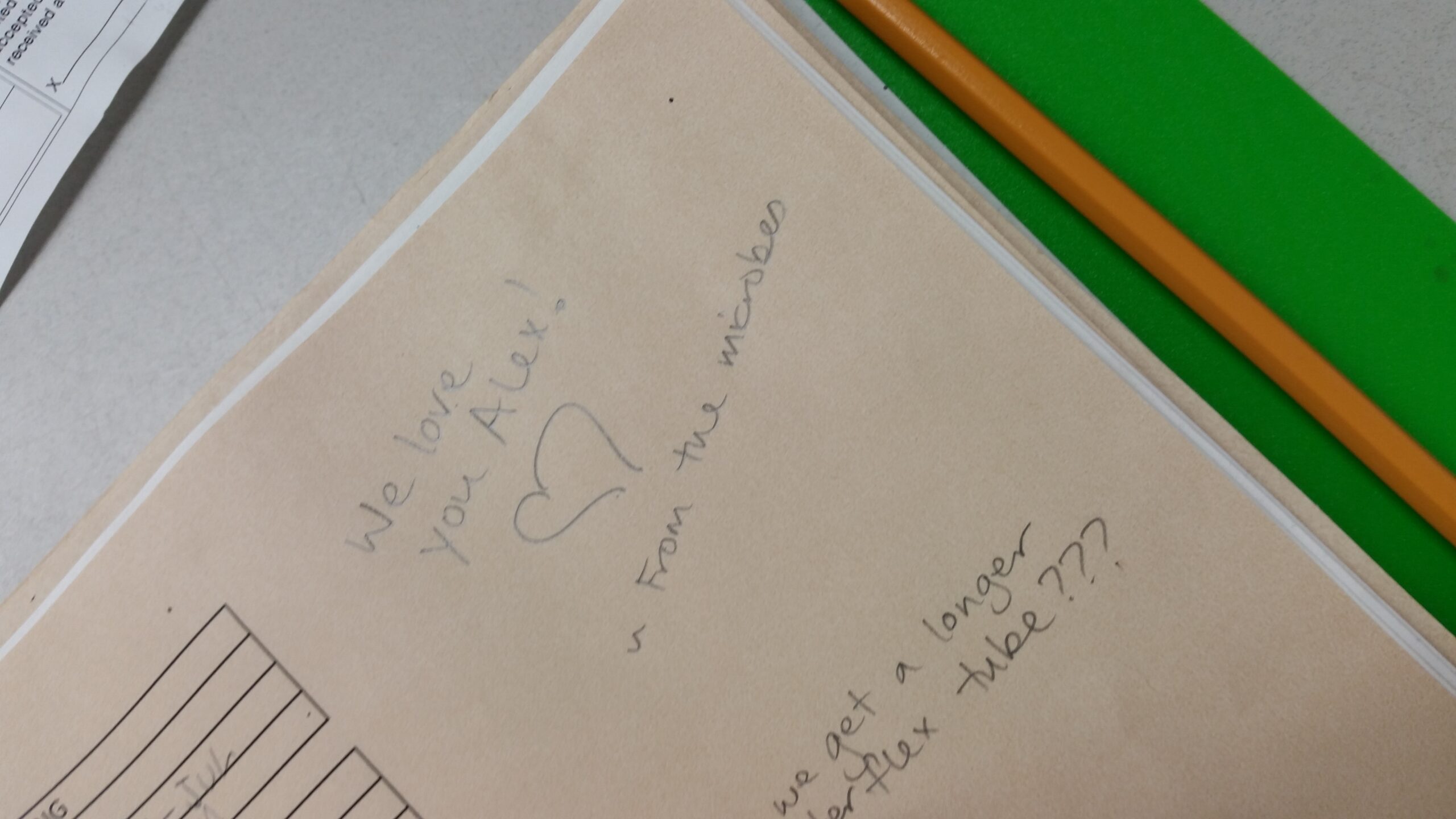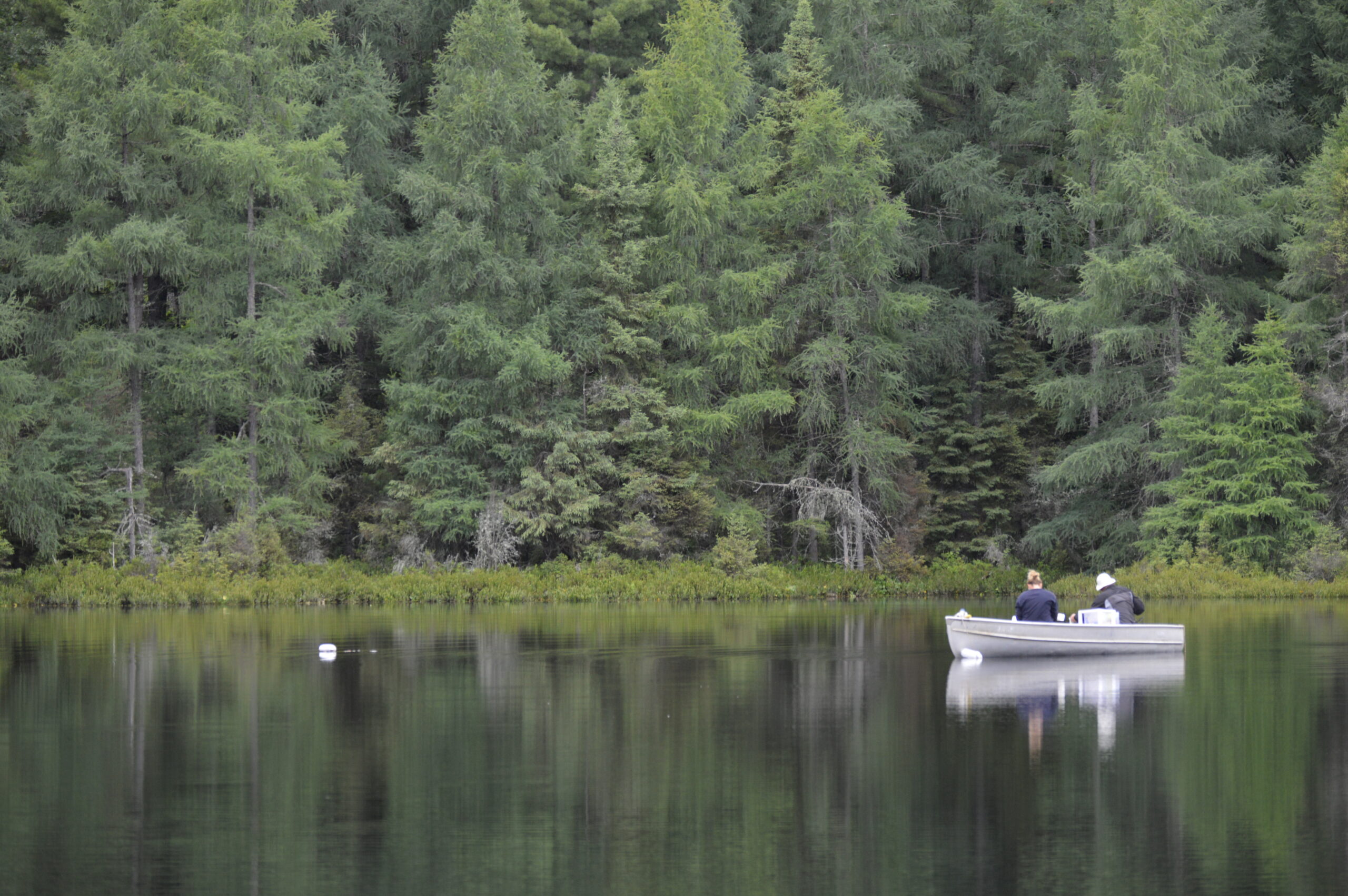By Alexandra Linz
It’s 4:00AM. Between prepping equipment and anxiety about today’s experiments, I only got a couple hours of sleep last night, but I’m full of adrenaline and ready to go. My undergraduate student and I drive to our first sampling site in beautiful northern Wisconsin, USA. The sun isn’t up yet, but the loons are laughing as we disturb Sparkling Lake’s calm waters, paddling our way to the buoy at its center. We drop our instruments into the water and wait a few minutes until exactly 5:00AM. In a flurry of motion, we begin to collect our samples – lake water concentrated through filters that must be collected in under 5 minutes and immediately frozen in liquid nitrogen. It’s over as quickly as it began, and the sun finally makes its way over the horizon. One timepoint down, thirty-five more to go.

Sparkling Lake.
Credit: Alexandra Linz
I’m an LTER grad student, but this past summer, I ran an experiment on short-term changes in bacterial metabolism. Bacteria are crucial and beneficial members of lake ecosystems, where they recycle nutrients, harvest energy from sunlight, and decompose organic matter. My lab has studied freshwater bacteria in Wisconsin lakes for over a decade. I’m interested in carbon cycling specifically, and to find out what carbon sources are being used by the bacterial community at any given moment, you can collect a molecule called RNA. RNA is a messenger molecule in cells, and deciding what RNA to make and how much is a major way that bacteria regulate their metabolisms. Essentially, it’s the middle step between “I have the enzymes I need to eat this” and “I have the instructions to make those enzymes.” But because it would not be helpful for a cell to have all these old messages hanging around, RNA degrades fast. To collect it, we need to filter our samples quickly and immediately freeze them in the field. On top of that, our bodies make enzymes that degrade RNA as a defense against viruses, so while sampling, you are constantly spewing enzymes with the potential to destroy your experiment. RNA work is not something to embark on lightly.

A note from the microbes.
Credit: Alexandra Linz
We initially considered adding RNA sampling to our long-term time series, but there was one major problem: we didn’t know if there were short-term dynamics of RNA in freshwater. I’d just read a study in the ocean where huge changes in RNA were observed at different times of the day, as the bacteria adapted their metabolisms to take advantage of changing light conditions. I was concerned that if we tried to add RNA to our long-term sampling, we’d get different results depending on what time of day we sampled throughout the year. My professor’s response? “You should write a grant to study that!”
Fast-forward a year and a half. I did write a grant, and that grant got funded (!), and here I was at the crack of dawn attempting to sample three lakes every 4 hours for 48 hours each, all within two weeks. See, that ocean study that inspired me used a sampling torpedo. They dropped it off in their current of choice and picked it up a week later, all samples safely stowed on board. I, on the other hand, convinced/begged/harassed everyone I could to help me with the fieldwork. With my amazing volunteers, all the equipment I could haul in a university vehicle, and much trepidation, we began sampling.

A boat sampling on the lakes.
Credit: Alexandra Linz
I was keenly aware of everything that could go wrong. But after that first timepoint, I felt like I had done everything I could, like I had pushed a start button and now just had to sit back and let events unfold. And amazingly, the field work went quite smoothly! Well, we had to reschedule one timepoint due to thunderstorms, and once the boat flooded and nearly sank in high winds, and there was the time I got stopped by law enforcement on suspicion of illegal night fishing – but I was ready for these things. Call me a pessimist, but that’s how field work is supposed to happen. You react and revise your plans, and you come back with your samples and some crazy stories.
By this point, the samples I collected last summer are nearly all processed and I’m just waiting on the RNA data. I’m excited to learn if bacteria in lakes show the same changes during the day as they do in oceans, and to see how their short term trends compare to the long-term trends we’ve been studying at LTER for years. And then maybe the next LTER grad student can take what I’ve learned and plan a super awesome multi-year RNA experiment!

Alexandra Linz is a PhD student in the Microbiology Doctoral Training Program at the University of Wisconsin – Madison. She works with Prof. Katherine McMahon studying bacterial carbon cycling in Wisconsin lakes. Alex is passionate about science outreach and also writes for her lab’s blog, uwmcmahonlab.wordpress.com. When not doing crazy experiments, Alex enjoys photography, playing guitar and piano, and reading science fiction.










